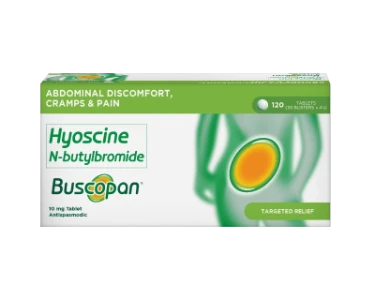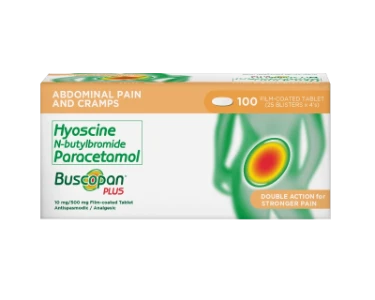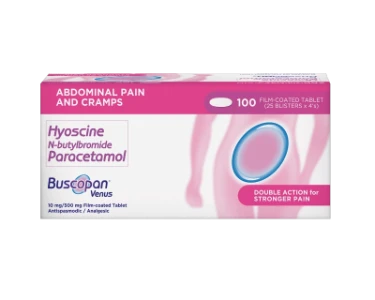Some forms of abdominal pain may be prevented or treated by making small changes to some of your lifestyle or dietary choices. For example, avoid gluten if you have celiac disease, or lactose if you are lactose intolerant.
Many people with IBS find that avoiding the following triggering foods reduces flare-ups9:
- dairy
- some carbs, such as foods containing sorbitol or fructose
- caffeine
- alcohol
Some abdominal cramps might get better with medication, such as antispasmodics like Hyoscine N- butylbromide (Buscopan®).
Hyoscine N-butylbromide (Buscopan®) can help relieve the majority of the crampy abdominal pains listed above, including common causes of abdominal pain in women such as menstrual cramps and digestive discomfort. This is because the active ingredient, hyoscine butylbromide, is an antispasmodic agent. This means it works by blocking the action of a chemical that causes cramps and spasms in the gastrointestinal tract. By doing so, Hyoscine N-butylbromide (Buscopan®) relaxes the abdominal muscles, putting a stop to cramps. In this way, it also acts solely on the source of pain, as opposed to OTC painkillers.
It can be helpful in medical treatment for relieving pain caused by the following conditions:
- gastrointestinal tract spasm
- spasm of the biliary system
- genitourinary tract spasm
- period pain
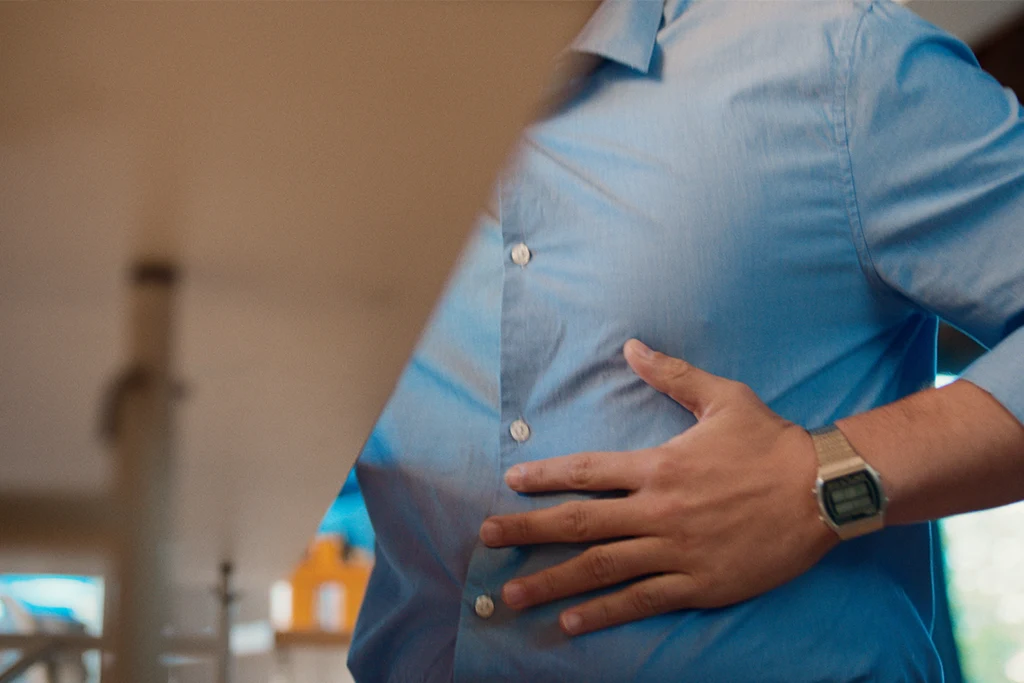






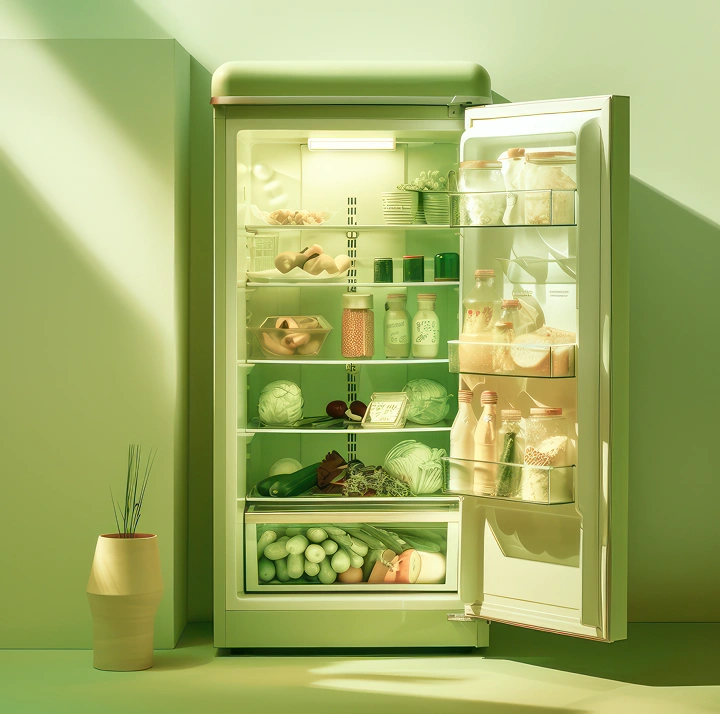

.webp)



.webp)

